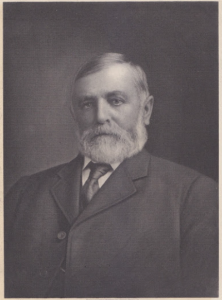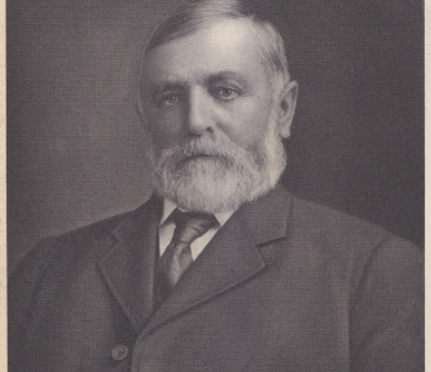So many of the Basques that immigrated to the United States made a huge and lasting mark on their local communities. We are all familiar with the Basque communities of Boise and San Francisco, and the men and women who built them. However, the Basque influence reaches so much further. Domingo Bastanchury, sometimes called the Father of Fullerton, was one such pioneer. At one point, the ranch he started held the largest citrus grove in the world.

- Domingo Bastanchury was born in Aldudes, Nafarroa Beherea in 1838 or 1839. His father was Gracian Bastanchury. At the age of 21, Domingo left Europe, sailing around the cape of South America to reach California after six months. He set foot in San Francisco on October 12, 1859. There, he began his career as a sheep and cattle herder.
- In 1874, he married Maria Oxarat (written as Oxarart in some texts), who was also from Aldudes. While Domingo was herding sheep, Maria was at home, raising their family in a small house miles from anyone else. They had four sons – Gaston, Joseph, John, and Dominic.
- As a herder, Bastanchury saved his money and soon acquired his own land and sheep. At one point, he was the largest sheep herder in what was then Los Angeles Country (now Orange County), owning between 15 and 20,000 sheep. He also owned some 8000-10000 acres of land near present-day Fullerton that he originally herded on. He was the first Basque sheepman to raise sheep in the area. The first laborers on his ranch were Native Americans.
- After his death in 1909, his sons eventually shifted to growing citrus trees – at one time they had the largest citrus grove in the world. Particularly after World War I, their production of fruit became prolific and was known across the world. However, during the Great Depression, much of the family’s holdings had to be sold off.
- Bastanchury’s impact on the economics of the area were so profound that he was sometimes called the “father of Fullerton.” Some accounts call him the first non-native person to settle in the area.
- As many Basque immigrants, Bastanchury didn’t speak English when he arrived in the United States. In fact, he never learned to read or write the language, instead relying upon Maria to do the books for the business. In fact, not long after getting married, Bastanchury had sent his new bride to the Sisters of Charity Catholic School in Los Angeles to learn English and accounting.
- On their ranch, the Bastanchurys had a fronton where other Basques, several recruited from the old country to work on the ranch, would gather and play pelota.
A full list of all of Buber’s Basque Facts of the Week can be found in the Archive.
Primary sources: Fame for Immigrant Boy Started Bastanchury Ranch, Roch Bradshaw, Orange County Historical Society; Fullerton History; Various newspaper clippings about Basques, including Bastanchury
Discover more from Buber's Basque Page
Subscribe to get the latest posts sent to your email.



He married aged 10 – impressive!
Ack! Thanks for catching that. Corrected! 🙂
Greetings, Adversity is good thing. Monique
This is my Great Great Grandfather. My grandmother Virginia Brinson, Domingo’s Great granddaughter lives in NC currently!